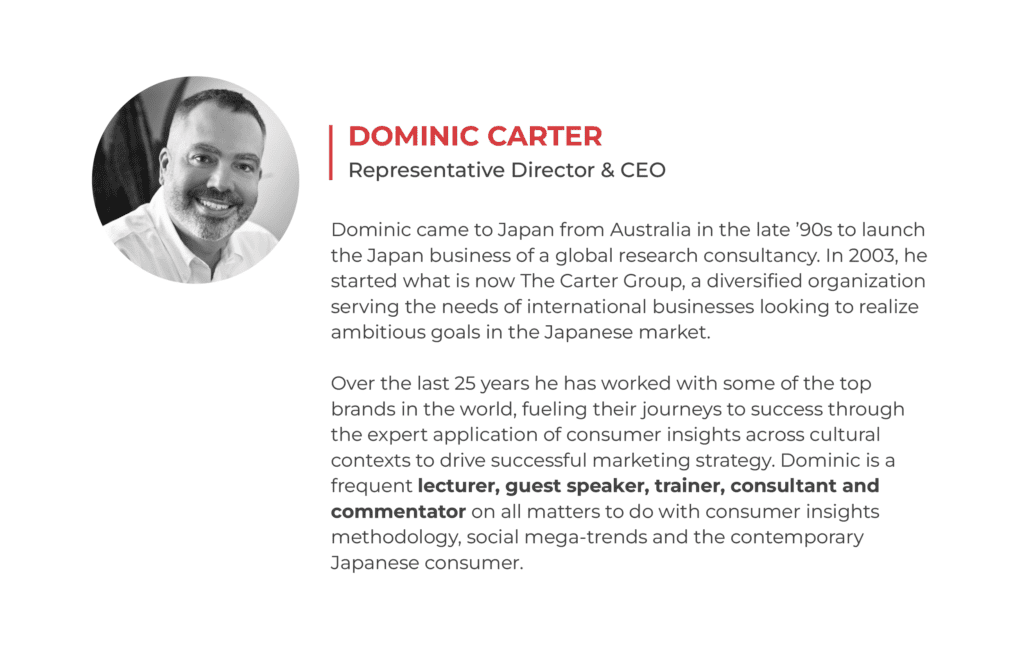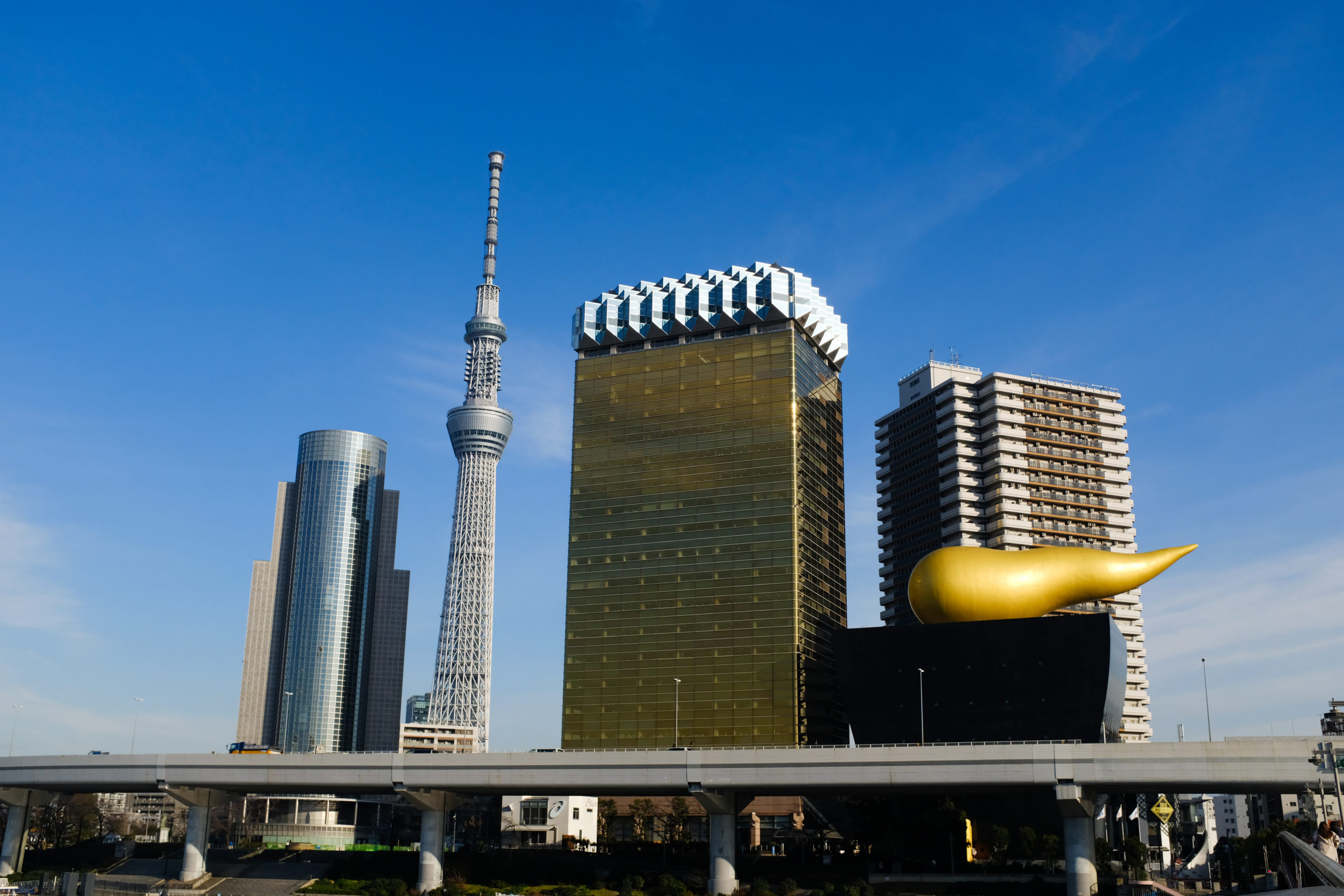
Consumer Expectations in Japan
Recently, a lot of people are working from home due to the Coronavirus epidemic. Yet, many continue to work at their offices or other related venues demonstrating how ingrained work habits are in Japanese daily life.
The presentation we, at CarterJMRN, have prepared for Japan America Society has been updated to reflect the impacts of the Covid-19 virus on Japanese consumer expectations, habits, and sentiments.
The presence of this virus will change what people desire in the long run. We are conducting surveys of consumer preferences and behavior with the pretense of what is expected to occur within medium to long term range. Of course, we know that it’s too early to predict behavior itself as we will be continually adapting to the latest conditions.
General questions about people’s level of concern mostly centered around on the concept of an economic downturn. To exemplify this result it showed that 56% of participants prioritized the economy while only twenty-two percent placed family well-being over the economy.
Another facet, in regards to Covid-19, was that 82% of respondents acknowledge seeing some economic impacts with a fifth claiming it as a major impact. A real time example is the social distancing campaigns seen throughout public venues to restrain the spread of infection. We can see how the Covid-19 Virus equally impacts Japan and the United States.
In times of crisis, I have found that Japanese consumers can bring their discretionary spending to their lowest levels or even turn them off like a tap. The overnight closure of restaurants and bars in my local area is a solemn reminder of the immediate effects of the 2008 financial crisis. The current situation demonstrates the inherent conservatism within Japanese society.
At CarterJMRN, we found that consumers reduced their expenditure in certain categories. We asked if the government gave respondents enough confidence to maintain their normal lifestyle and spending habits. Most within our index of consumers stated the Japanese government did restore some confidence but about 46% strongly disagreed with that idea.
I do note that any government, including Prime Minister Shinzo Abe’s, is limited in their options within the current situation. Therefore, we perform consumer confidence tracking wherein we compare on an annual basis how participants feel about the condition of the Japanese economy. We quantify those who state they hold strong positive perceptions of it and notice the shift in 2020 from 2019, wherein pessimistic opinions rose nearly thirty percentiles to 76%. This displays a resounding impact the virus has on consumer confidence.
The Japanese sentiment of the United States shows a positive rising trend of 31% in 2017 to 38% in 2020. Even though most respondents were neutral about the relationship of Japan with the US. Comparison of the annual survey displays that as positive connotations grew inversely negative perception percentages declined, which supports a claim of rising positive sentiment of the US by Japanese people.

Integrated Resorts in Japan
Due to mass media coverage and ongoing national parliament discussions about bringing Integrated Resorts (IR) to Japan, we found consumer awareness rising from 44% to 54% of survey takers stating they are familiar with it. As for excitement from the leisure and economic prospects that casinos and integrated resorts will produce in Japan. Respondents results show a two percent increase in interest from 25% in 2019 to 27% in 2020.
To incentivize prospective clients who are still undecided on the topic we have discovered there is still a great deal of work to be done in terms of providing information to educate them. Such as the economic benefits of establishing integrated resorts through increased tourism and generating tax revenue that will benefit society.
A more impactful prospect is the clientele or visitors to these venues as we have found that about twenty-four percent of respondents would be interested in visiting an IR within three hours of travel. We could deduce that these figures would be comparatively lower if the Japanese clientele had to weigh in the cost to travel to Macau or Nevada State to gain the same experience.
In terms of brand awareness of the integrated resort operators, Las Vegas Sands is still the leading brand. Their competitors MGM, Galaxies, and the Hard Rock franchises compete through their brand familiarity. It will be interesting to see who comes out on top if and when the project’s break ground in Japan.
The last aspect of integrated resorts that conversations lead to is the plan to deal with the harm gambling programs introduce into society. Our survey shows that it is a more moderate concern below the economic tax incentive. The reason for this in Japan is that most respondents consistently endorse the statement that government and businesses must be more transparent and open about their operations. With this strong endorsement for transparency of 75 percent, it will be a deciding factor if such ventures are to ever have any success.
In this day and age digital entertainment is a winner, anything digitally driven as you can imagine is going to be doing quite well in the Japanese market.

